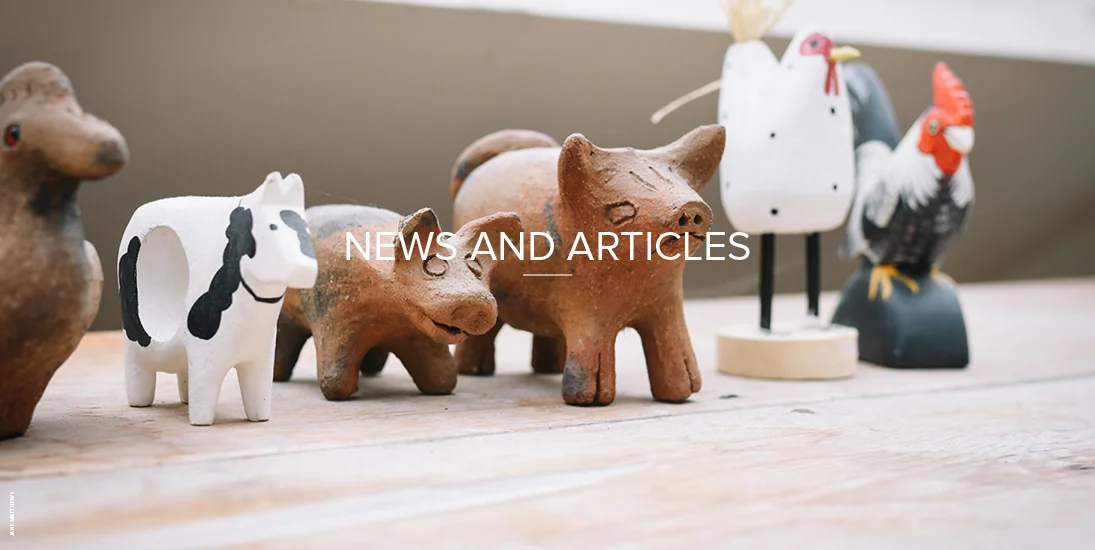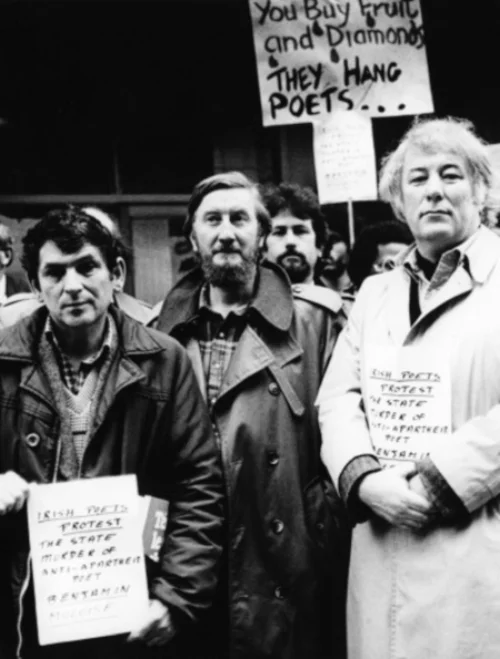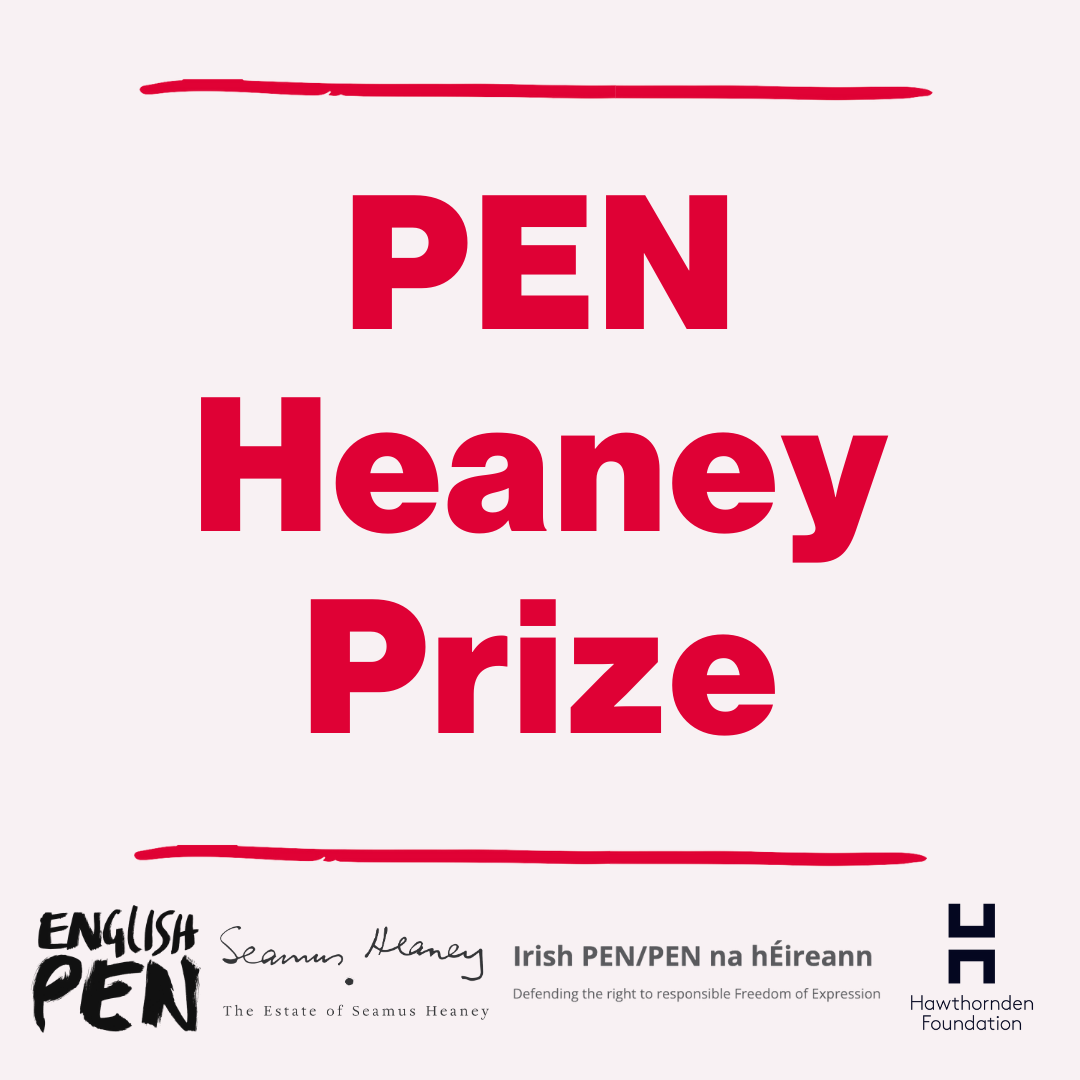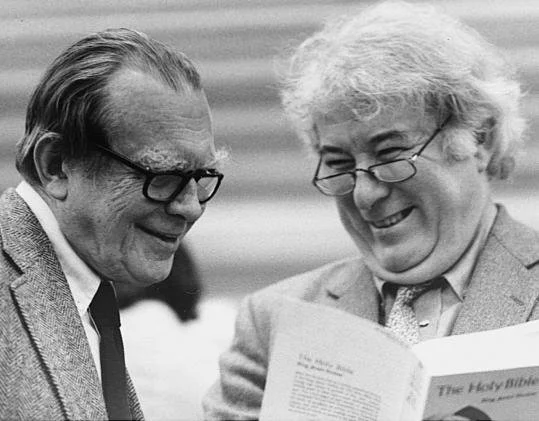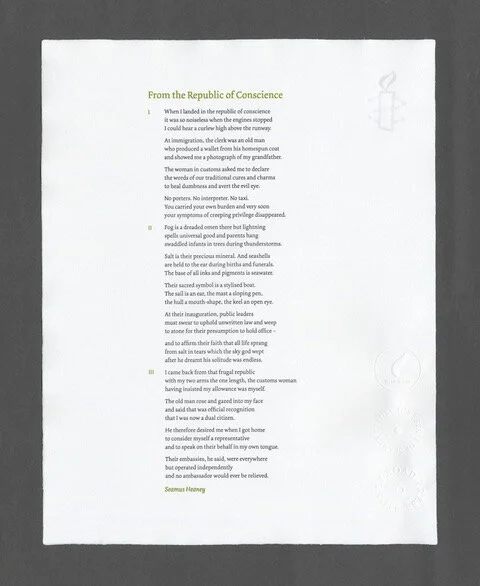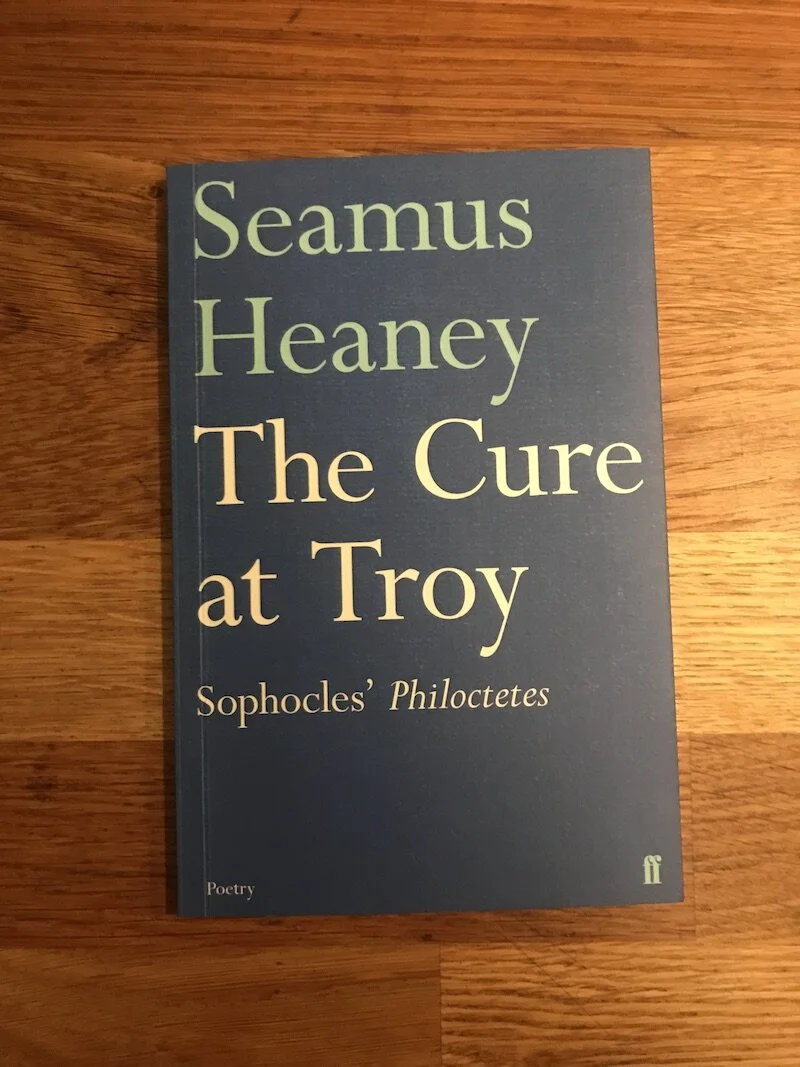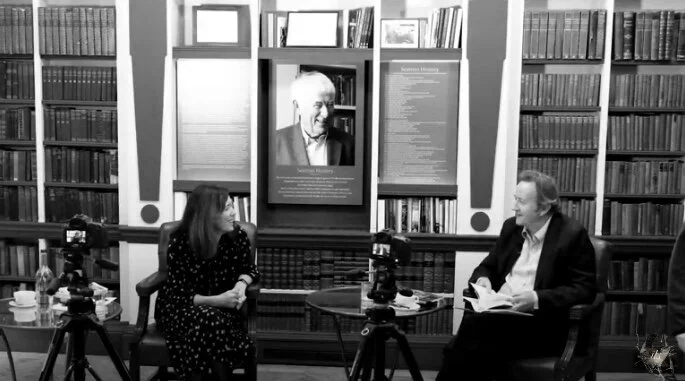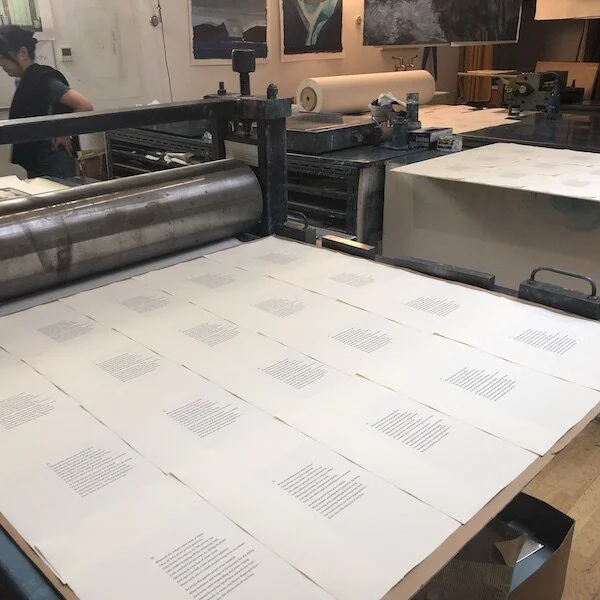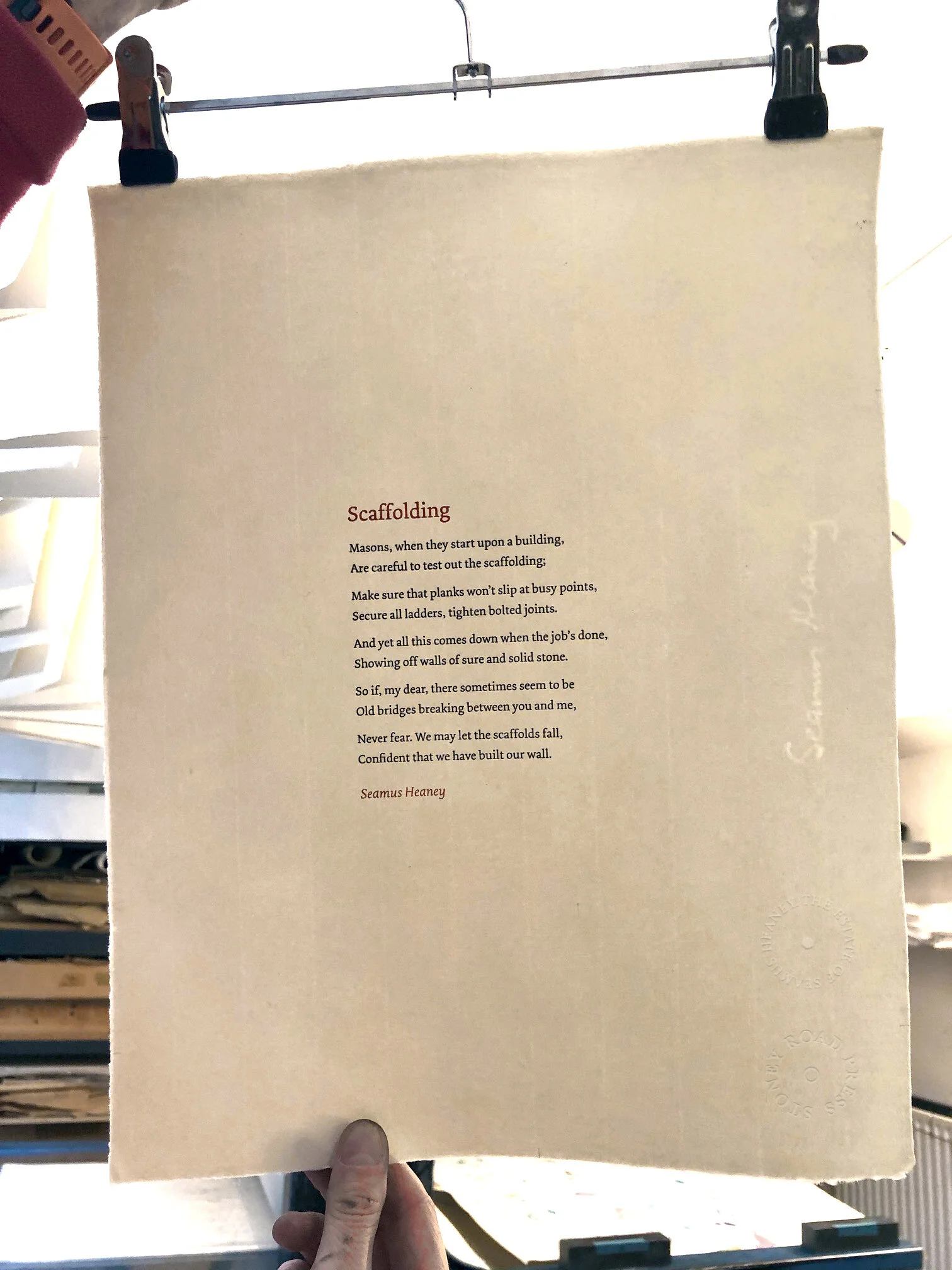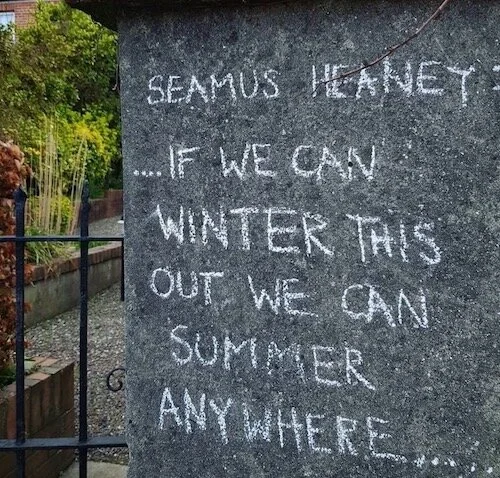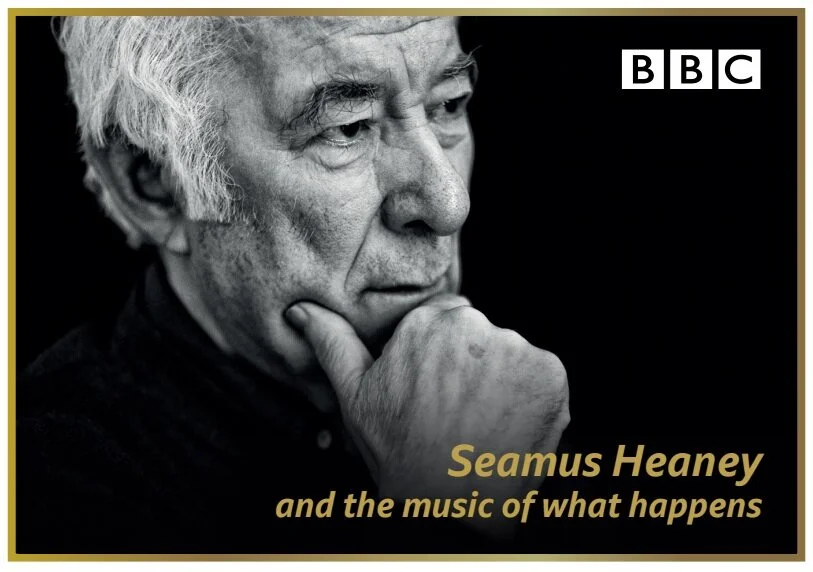In late August 2002, Seamus Heaney visited South Africa to receive an honorary degree from Rhodes University and to participate in a tribute to Rhodes professor Malvern Van Wyk Smith. It was his first and only trip to Africa. During this visit Heaney and his wife Marie also met their longtime friend Kader Asmal, a South African politician and who had lived in Ireland and lectured in Law at Trinity College Dublin in the 1970s and 1980s. Asmal had founded the Irish Anti-Apartheid movement – of which Heaney was an active supporter (he seen here at a demonstration in 1985) – and returned to South Africa in 1990. By the time of the Heaneys’ visit twelve years later, he was Minister for Education.
In his conferral speech at Rhodes, Heaney recalled his first encounter with Asmal at a poetry reading organized by the Irish Anti-Apartheid Movement in December 1967, at Dublin’s Liberty Hall: ‘Kader certainly had respect for poetry itself as the voice of the individual spirit; but as a worker in the cause of the repressed millions of his countrymen and women, he had organised that poetry reading in order to reinforce the demand for equality and democracy in his native country.’
Later in the speech, Heaney returned to this theme of the tension between the demands on a writer for public pronouncement on contemporary events, and the necessity of staying true to one’s inner self. It was a situation in which many South African writers had found themselves, a place that he characterized as ‘the middle of a crossroads where your answerability as a writer to your times and your place is cut across by your obligations to your art and to yourself.’
In addition to receiving an honorary doctorate, he also delivered his lecture ‘The Guttural Muse’ and gave a poetry reading at the chapel on the Rhodes University campus, from which the three recordings below are taken. They include introductions of the kind for which Heaney became famous – providing context and insight on the impulses and inspirations behind each poem. In this case, his early poem 'Digging' and what the poet calls two 'little wonder tales', 'Lightenings viii' and 'St Kevin and the Blackbird'.

